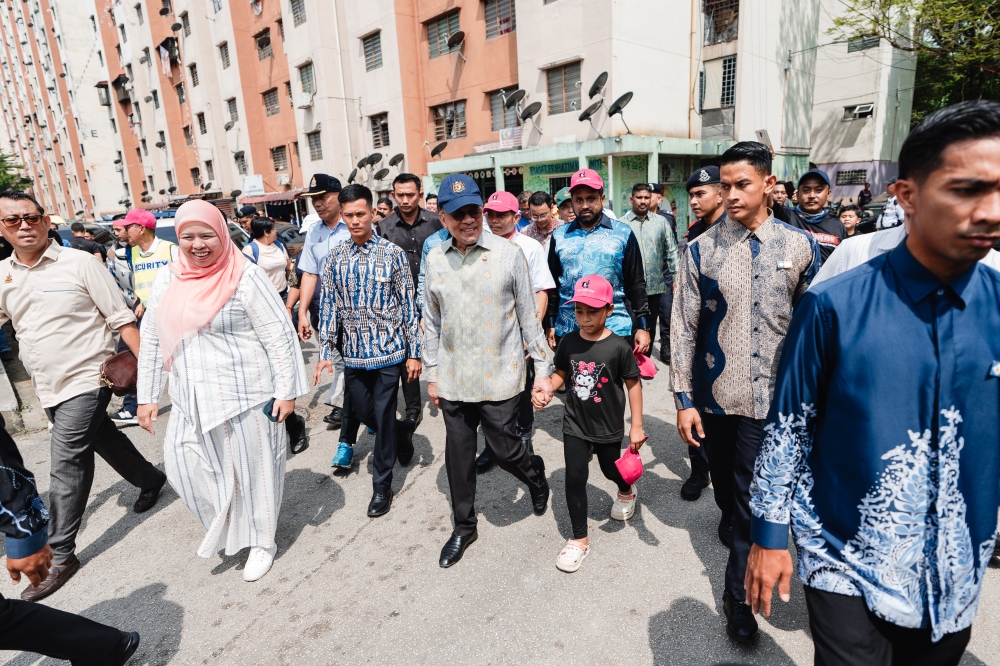FEBRUARY 19 — Our Prime Minister’s recent visit to PPR Lembah Subang-1 was an important endorsement of the Forum Komuniti (FORKOM), a groundbreaking initiative that is reshaping public housing communities.
By bringing together diverse residents, this innovative approach fosters inclusivity, strengthens social cohesion, and transforms once-neglected spaces into vibrant, liveable environments.
It proves that when communities are empowered, they can drive meaningful change from within.
Developed under Think City’s Program Kita-untuk-Kita (K2K), funded by the Ministry of Finance, the FORKOM has achieved notable successes.
Among the most striking is the transformation of lift lobbies from grimy, underused spaces into welcoming social hubs bustling with activity.
Residents today conduct birthday parties, festive gatherings, and even children’s homework supervision in these new social spaces.
This achievement is particularly striking for its scale. In PPR Lembah Subang-1 alone, the transformation took place across all 132 floors of the 8-block complex, home to over 12,000 residents.

Prime Minister Datuk Seri Anwar Ibrahim recently visited the PPR Lembah Subang-1. — Picture courtesy of Think City
The FORKOM emerges from an 18-month structured community development process under Program K2K, implemented across ten public housing complexes.
During this period, over 2,000 empowerment activities—including skills training and leadership development—were carried out to strengthen community groups, unified under the FORKOM.
The impact has been remarkable, with residents reporting a stronger sense of ownership over their surroundings, noticeable improvements in cleanliness, and, in some areas, a 50 per cent drop in crime.
The FORKOM is an example of a social asset that can strengthen social capital and support management effectiveness in public housing.
It fills a critical gap in today’s public housing landscape, which often focuses on physical assets over social infrastructure.
Central to this transformation is the ‘Forum’ model. By creating an open platform for residents to discuss shared concerns, propose solutions, and mobilise efforts, FORKOM has fostered collective responsibility and reduced traditional top-down decision-making that can lead to ‘elite capture’.
This participatory model demonstrates that nurturing social capital—through mutual trust, transparency, and shared responsibility—can dramatically transform a community.
By empowering residents to organise collective action and align their efforts with government agencies, FORKOM drives momentum for sustainable urban renewal.
This model can be replicated nationwide, enhancing liveability in public housing communities and setting a precedent for future initiatives.
The Prime Minister’s visit to PPR Lembah Subang-1 underscores both the success and scalability of this initiative.
He commended the community for their efforts and highlighted the importance of continued collaboration between residents, government agencies, and policymakers.
Ensuring this initiative’s longevity will require sustained investment, supporting policies, and active community engagement.
The impressive transformation at PPR Lembah Subang-1 clearly demonstrates that with the right tools and opportunities, even the most challenging environments can become thriving, inclusive spaces.
The success of FORKOM underscores the crucial role of social assets in public housing reform.
It demonstrates that creating thriving, empowered communities is just as important as constructing physical homes.
True transformation goes beyond brick and mortar; it requires fostering a sense of belonging, shared responsibility, and collective action among residents.
By embracing this holistic approach, we align with the Prime Minister’s vision of a Madani society—one that is inclusive, sustainable, and rooted in mutual respect.
Moving forward, continued investment in social capital will be essential in ensuring that public housing communities are not just places where people live but spaces they truly call home.
*Dr Shahridan Faiez is the Director of Program Kita Untuk Kita (K2K), a community empowerment and transformation programme funded by the Ministry of Finance and implemented by Think City.
** This is the personal opinion of the writer or publication and does not necessarily represent the views of Malay Mail.







